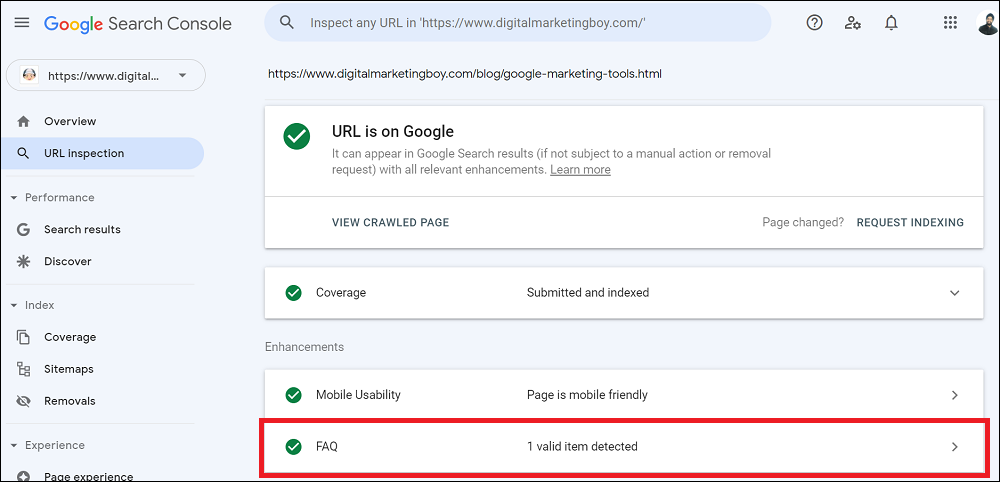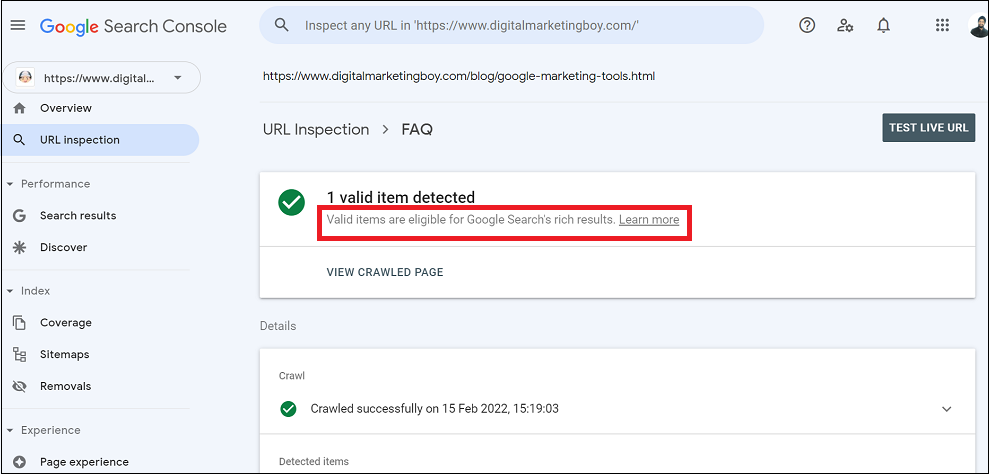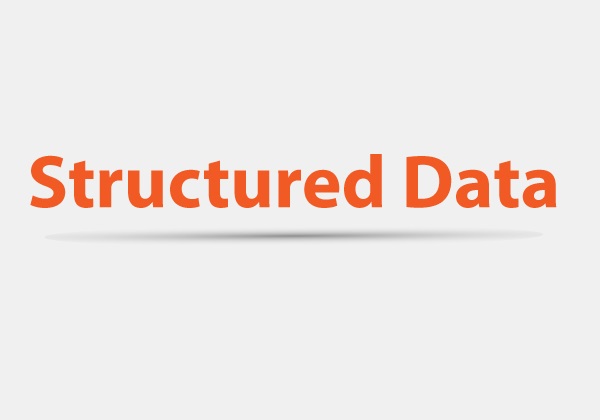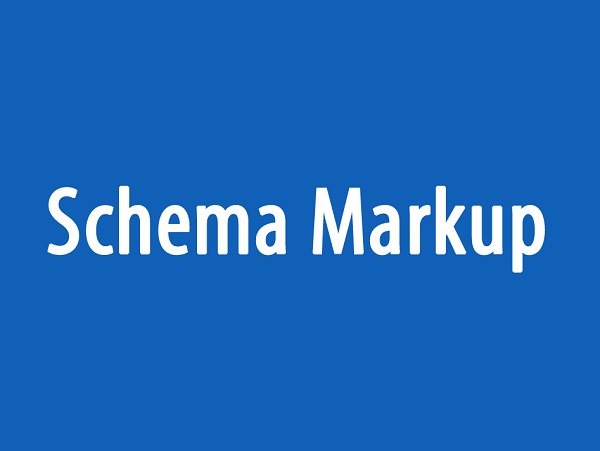


Everyone today knows about FAQs (Frequently Asked Questions) and their importance. It gives the user solutions to concerns raised by the majority, and it is usually present in every article in question-and-answer format. It helps in understanding the gist of the article efficiently as it contains a list of commonly asked questions along with their respective answers in one place.
Schema is a markup system in the form of a code, that is placed on the website to make it easier for the search engine to understand its content. Search engines need these markups and rich content to improve the user search results and give better results. Having a schema provides you information about the content that can hook the user and nudge them to know the details.

FAQ schema is a code placed on the website for the communication to the search engines (Google, Bing, etc.) about the content in a question & answer format. When the webpage is marked up with such content, which means that structured data along with images, carousel, easy navigation, and search boxes is being used, the chances of these articles being visible on the search engine increases. These are then known as rich results or rich snippets.
A. How do I create a FAQ schema?
Creating a FAQ Schema is easy and can be implemented on the go. Webpage for schema type needs to be selected. After that, question and answer fields need to be added. Save the changes and you are done!
To ensure that implementation has been done correctly, you need to test. All the testing tools are readily available online free of cost. You can preview the test results, recrawl the pages and confirm the correct implementation. It can be done through the search console.

One should make sure that each question includes the entire text of the question and answers include the entire text as well. If there is only a single question and answer, it shouldn't be used as FAQ Schema. Also, FAQ Schema pages should not be used for advertising.
B. Benefits of FAQ Schema:
Increased Visibility
Schema markup helps Google and other search engines to crawl the webpage in a better way and understand the content in detail. FAQ-rich content helps in increasing the overall website visibility because it occupies additional space in every article. More content can be shown to users from your webpage and more links can be presented to direct them to relevant sub-part of the page.
High User Interaction
It also increases user engagement because user interaction with FAQs is usually more than that with the main page. The creation of additional space leads to higher interaction and hence, higher click-through rates. It is one of the best ways to ensure higher clicks as it takes up more real estate on the search page as well.
High Ranking
Rich content ensures that search results are visible on the first page. FAQ schema is helpful for blogs and pages that rank on the first page as it helps in better crawling of the page.
New Features
FAQ schema creates an opportunity for voice search action that will have a stronghold across pages in the coming years. This will be useful for people who ask questions using voice search. It also gives a boost to the brand and a unique user experience that ensures higher engagement and ranking.
To markup your page, FAQ schema can be placed on FAQ pages or pages with a FAQ section. FAQ pages separately do not rank well. This alone with no help in increased ranking. When FAQ schema is added to your pages consisting of products and services, it will create a noticeable impact on SEO in terms of visibility. Pages that contribute directly to the main goal or bottom of the funnel should have FAQ schema added to ensure better ranking and SEO results.
You should analyze the performance periodically to understand the impact of the FAQ schema. The performance data will highlight the frequency of occurrence of rich results, the number of clicks, and the average position of these results. This will help in increasing the richness of the content and effectiveness of the process.
FAQ Schema is a must-have to be implemented when you have information in the form of multiple questions and answers. They are extremely beneficial and will help in growing and sustaining your business by reaching a vast audience. The results might take some time to show their significance in SEO, but all the efforts will be surely worth it!
Here are some frequently asked questions about FAQs Schema:
1. Should everyone use FAQ Schema?
It is extremely beneficial as it helps in increased visibility and enabling new features. Having said that, it is useful if the content is in a specific format only. FAQ Schema increases the click-through rate (CTR) of your organic traffic because searchers get engaged after viewing the answers on the search engine result pages (SERPs).
2. How to implement rich results?
The informative results presented by the search engines to the users are called rich results. These can be achieved by adding Schema Markup (FAQs, Articles, etc.) to the HTML code of a website.
3. How to test the results from FAQ Schema implementation?
You should use the Structured Data Testing Tool of the Google search engine to ensure that the Schema Markup code is correctly implemented on the page. Further, you will have to use Google's Rich Results tester for the view of FAQs data on the SERPs.


Experts can add Semantic vocabulary of tags to your HTML to improve the representation of your web pages in SERPs.

Let us run you through the common types of Schema Markup.

Let us explore the benefits of Schema Markup in digital marketing.